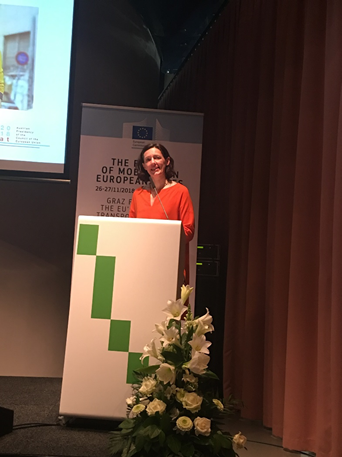The future of European Urban Mobility discussed at Graz Forum
With the 2030 Climate & Energy Targets as the framework, the European Commission, DG MOVE, held a two-day forum to develop the new EU Strategic Transport R&I Agenda (STRIA) in Graz, 26-27 November.
System integration of urban mobility technologies, the needs of European citizens, big data management, and the integration of new private urban mobility services into the public transportation system, were some of the main topics addressed during the Graz Forum on Urban Mobility for European Cities of the Future.
The main objective of the event, that took place in Graz from 26 to 27 of November under the Austrian Presidency, was to develop new ideas for the EU Strategic Transport R&I Agenda (STRIA). STRIA builds on and integrates seven thematic transport research areas:
- Cooperative, connected and automated transport;
- Transport electrification;
- Vehicle design and manufacturing;
- Low-emission alternative energy for transport;
- Network and traffic management systems;
- Smart mobility and services; and
- Infrastructure.
The forum which included 100 selected participants from all sectors and most European countries, focused on 5 priority areas for transport transformation by 2030 and 2050: the development of integrated mobility systems, shared data and infrastructure capacity, establishing better operational models, future interoperability and low-altitude aerial mobility.
Some of the questions raised during the Graz Forum: How can aerial mobility open opportunities for all? Can we better understand the changes of mobility behaviour and adapt to multiple needs? How to overcome major challenges such as congestion, road accidents and inadequate public transport? Is it possible to build up efficient public-private transport models, which lead into decarbonisation?
The resulting new EU Strategy to be published in the 2nd half of 2019 will be a guiding framework for research and innovation in the field of Smart Mobility Services. We will keep eseia readers informed about the outcome.

Henriette van Eijl, from DG MOVE. / Credits: eseia
Contact person:
Brigitte Hasewend, eseia Director, e-mail: brigitte.hasewend@eseia.eu
Further reading:

